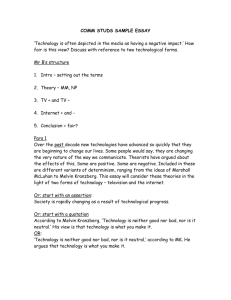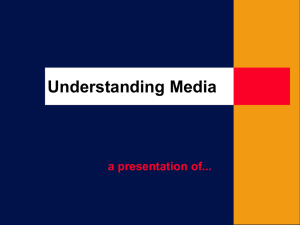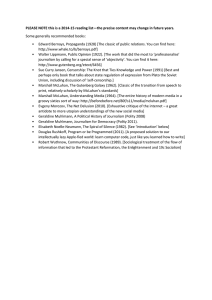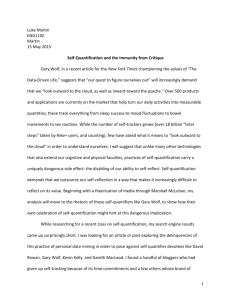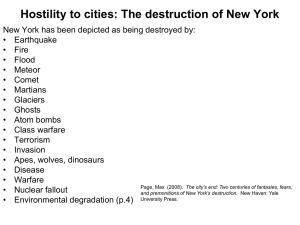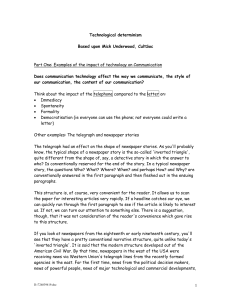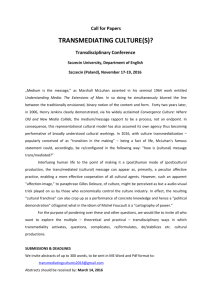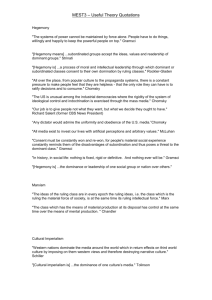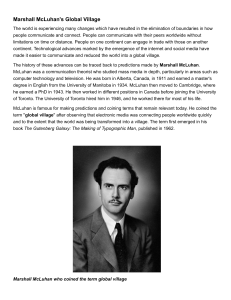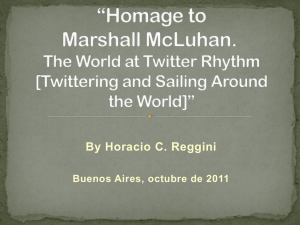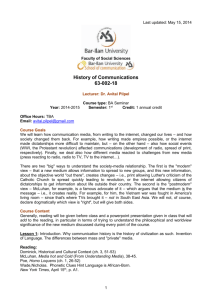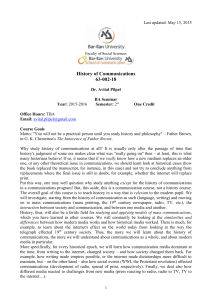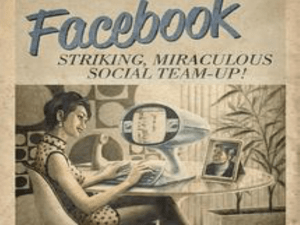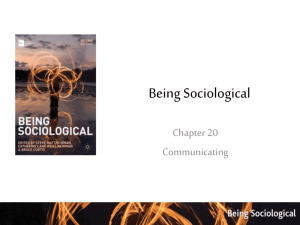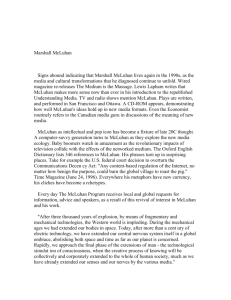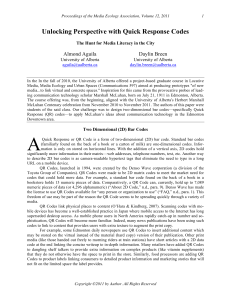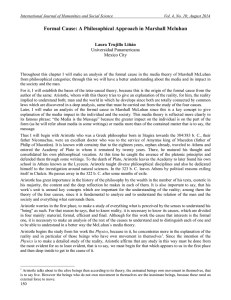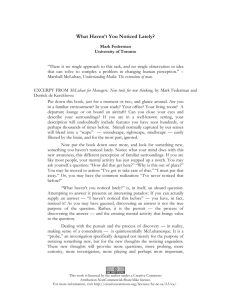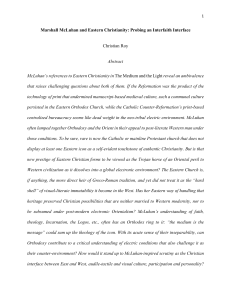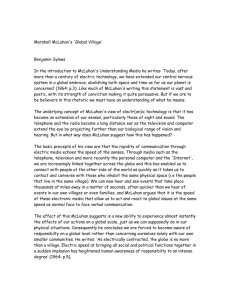Close Up on Media Theory: Marshall McLuhan and Cultural Studies
advertisement
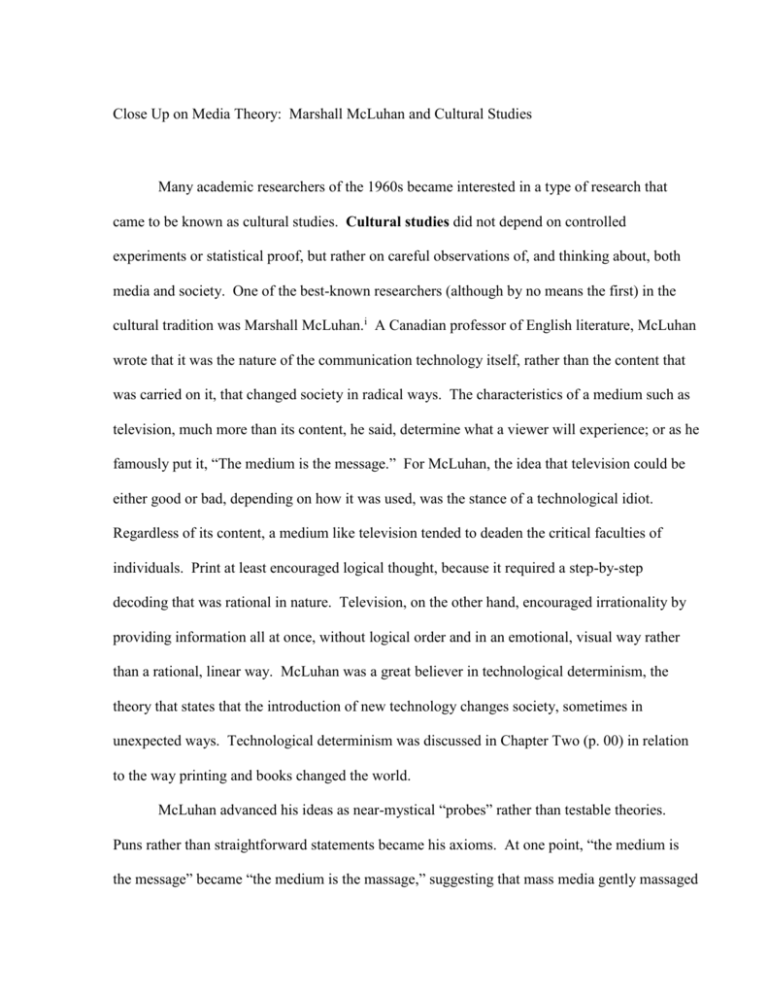
Close Up on Media Theory: Marshall McLuhan and Cultural Studies Many academic researchers of the 1960s became interested in a type of research that came to be known as cultural studies. Cultural studies did not depend on controlled experiments or statistical proof, but rather on careful observations of, and thinking about, both media and society. One of the best-known researchers (although by no means the first) in the cultural tradition was Marshall McLuhan.i A Canadian professor of English literature, McLuhan wrote that it was the nature of the communication technology itself, rather than the content that was carried on it, that changed society in radical ways. The characteristics of a medium such as television, much more than its content, he said, determine what a viewer will experience; or as he famously put it, “The medium is the message.” For McLuhan, the idea that television could be either good or bad, depending on how it was used, was the stance of a technological idiot. Regardless of its content, a medium like television tended to deaden the critical faculties of individuals. Print at least encouraged logical thought, because it required a step-by-step decoding that was rational in nature. Television, on the other hand, encouraged irrationality by providing information all at once, without logical order and in an emotional, visual way rather than a rational, linear way. McLuhan was a great believer in technological determinism, the theory that states that the introduction of new technology changes society, sometimes in unexpected ways. Technological determinism was discussed in Chapter Two (p. 00) in relation to the way printing and books changed the world. McLuhan advanced his ideas as near-mystical “probes” rather than testable theories. Puns rather than straightforward statements became his axioms. At one point, “the medium is the message” became “the medium is the massage,” suggesting that mass media gently massaged its user into a state of oblivion that destroyed rationality and critical thinking. McLuhan also advanced the idea of the global village, in which information about people of different cultures, in different countries thousands of miles away, become as meaningful to media consumers as things happening in their own neighborhoods.ii Of the several books McLuhan wrote, the best known is Understanding Media, which some critics have described as “so densely written as to be unreadable.”iii Because of the profound nature of much of what he said, McLuhan was referred to as a “media guru” during his lifetime. After his death in 1980, many called him a “media prophet” because his suggestions seem to have special significance to the contemporary world.iv The worldwide mourning that took place for Princess Diana and John F. Kennedy Jr., for example, suggested that his idea of a global village had come true. i See, for example, W. Terrence Gordon, Marshall McLuhan: Escape Into Understanding (N.Y.: Basic Books, 1997). ii McLuhan wrote more than a dozen books, the best known being Understanding Media: The Extensions of Man, 1964. iii Stanley J. Baran and Dennis K. Davis, Mass Communication Theory: Foundations, Ferment and Future (Belmont, CA: Wadsworth, 1995), p. 326. iv See, for example, Paul Levinson, Digital McLuhan: A Guide to the Information Millennium (New York: Routledge, 1999).
